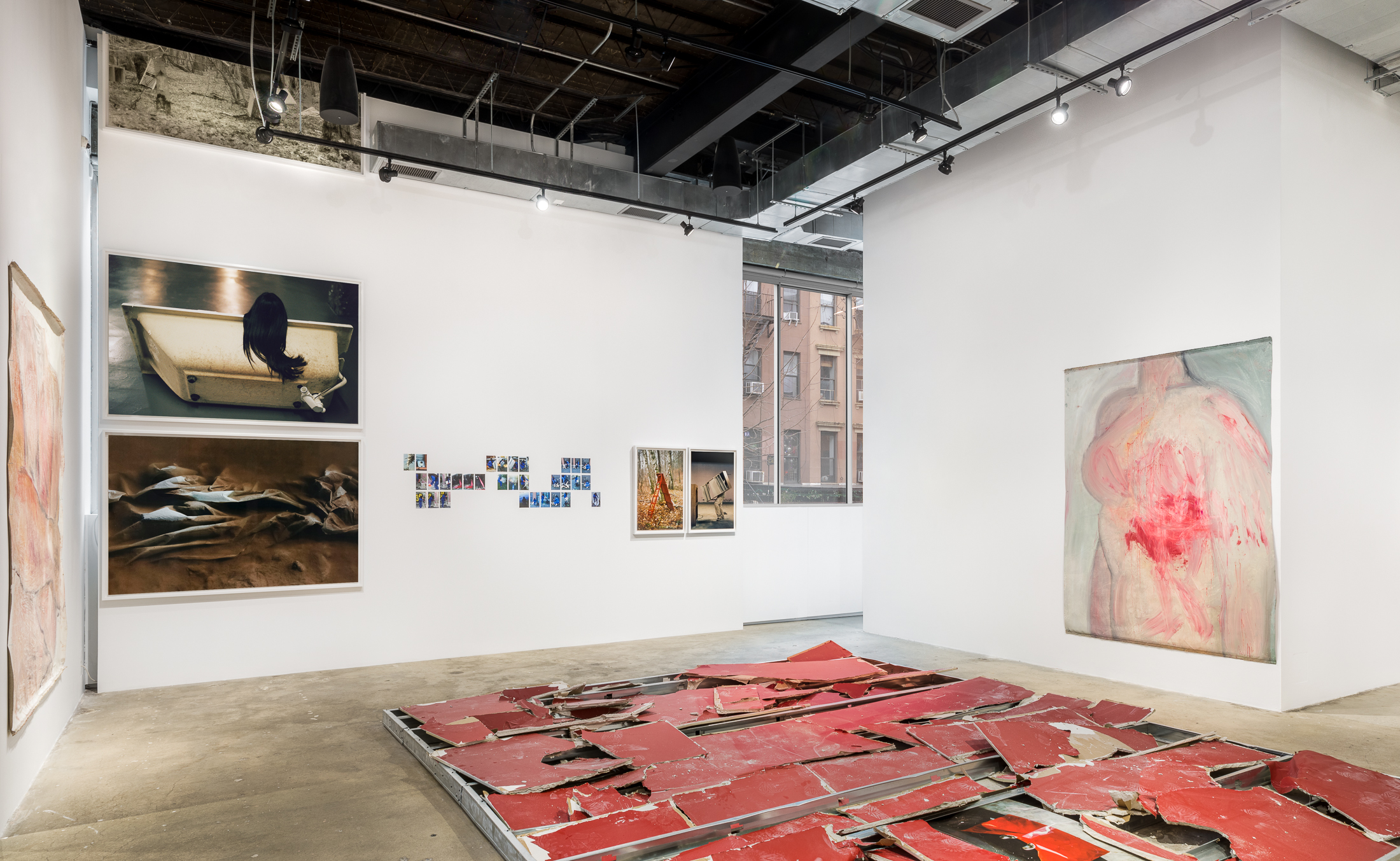Ser Serpas: Hall | ArtNews
Feb 15 2023

A maroon-colored wall used as a backdrop for a prior exhibition at New York’s Swiss Institute gets a second life as a floor in Ser Serpas’s new show there, one of the season’s buzzier outings. Partly torn up, slightly battered, and now lined with the dusty prints left behind by sneakers, the wall constitutes something akin to an art object in its own right.
Serpas has a way with trash, which she plucks from the street and then presents in galleries to maximum effect. I can still recall the first time I encountered Serpas’s refuse-chic sculptures four years ago, at a now-defunct Lower East Side space whose back room she filled with little more than a junked refrigerator propped diagonally against a radiator. From the ceiling’s corner drooped a tattered mattress. It was a haunted, haunting show that left me feeling as though I’d seen a ghost.
Her Swiss Institute show is a much different, and in some ways eerier, affair. It contains few of these objects, although it has a number of pictures of her making them, many produced in collaboration with artist Rafik Greiss. In one image, Serpas is posed so that her long hair cascades over a bathtub turned on its side. We don’t get to see Serpas’s face, so she appears like an apparition, imbuing this tub with a supernatural force.
Despite its rough-hewn conceptualism, Serpas’s art has proven seductive for many. She’s had a slew of solo shows in hot European galleries over the past few years, and she appeared in the Hammer Museum’s Made in L.A. biennial three years ago; mega-collector François Pinault recently showed her work at his Paris museum. All this has happened before she even turned 30.
Here’s the good news: the Swiss Institute show proves that Serpas is more than just the hype. If anything, the exhibition, her first solo in an institutional setting, suggests that she’s a talent worth watching.
Curated by Daniel Merritt, the show implicitly situates Serpas within the well-trodden lineage of artists working with ready-made material. It’s tempting to lob jargon like “Duchampian” and “Dadaesque” at Serpas’s sculptures, but Greiss’s pictures underscore how lame those comparisons would be. In one photograph, Serpas, wearing a worker’s jumpsuit, can be seen hauling a gigantic tire—a laborious physical task emblematic of her practice writ large. It’s hard to imagine Duchamp ever having broken a sweat as he flipped his famed urinal and called it art.
More recently, artists like Cameron Rowland and Danh Vo have wrung intricate political narratives from seemingly banal objects. Serpas doesn’t seem much interested in doing that either. The strollers, mirrors, and chairs she can be seen handling in Greiss’s images are anonymous—they could have come from anyplace or anyone, and if they do contain hidden stories, those tales are legible only to the artist herself. Even the settings in which these pictures are taken are left only as vague forests or sidewalks.
Do not mistake Greiss and Serpas’s photographs as mere documentation of private performances, for these pictures are far more than that. They tease out unexpected connections between bodies and sculptures, and sometimes even offer up artworks that appear fleshy. There’s one photograph of a mattress folded in half by Serpas; two wooden planks have been laid atop it, causing these objects to appear like a pair of splayed legs.
Serpas has often drawn connections between her assemblages and her writing — she once called her poems “time-sculptures.” Indeed, there’s a good amount of text in the Swiss Institute show. Four vitrines contain a scattering of pages excised from Serpas’s Moleskine notebooks from the past decade, doodles and all, and several of her books are available in a sectioned-off library. Her writing, with its tumult of words and coolly written non-sequiturs, is as oblique as her visual art, but it lacks the internal logic that makes her sculptures sing.
Serpas’s paintings move this opacity in a more interesting direction. Done on sizable swaths of unevenly cut jute, they ooze an ominous intensity. One features a chest that has been slathered with what appears to be blood, while another shows a belly button that leaks something like black oil.
One painting is awarded a room of its own: an untitled 2018 work depicting a person who holds a silky negligee to their chest, a strap having fallen down one shoulder. Flecked with nail polish, coffee, and more, it’s propped against a raised pedestal that causes it to seem like a holy relic — something to be admired yet not necessarily understood. Covering up, this painting suggests, can be just as revealing as baring it all.
By Alex Greenberger
